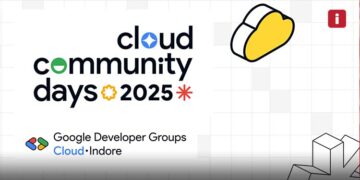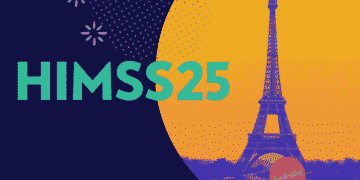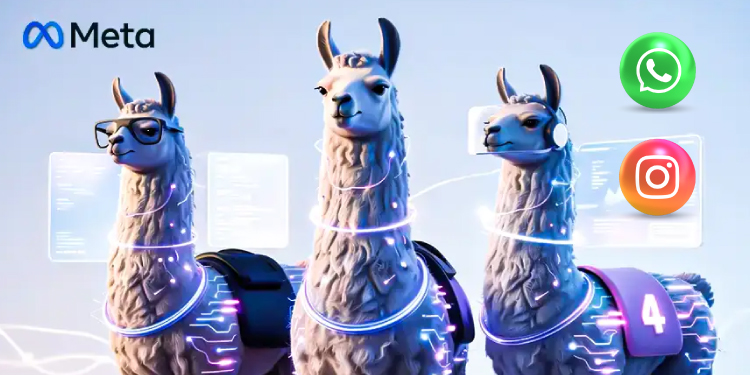Meta Supercharges Social Apps with Llama 4
In a bold move to bring powerful AI directly into the hands of billions, Meta Platforms has unveiled Llama 4, the latest version of its open-source language model series. Dubbed Llama 4 Scout and Llama 4 Maverick, these new models are part of the upgraded Meta AI suite and are being directly integrated into WhatsApp, Instagram, and Messenger.
Meta’s CEO Mark Zuckerberg revealed the update, emphasizing that Llama 4’s performance has now surpassed competing models in key benchmarks like reasoning and coding—areas critical to building truly intelligent AI companions.
The AI race just got more personal.
What Is Llama 4 and Why It Matters
LLaMA, short for “Large Language Model Meta AI,” has evolved rapidly over the past year. While earlier versions targeted developers and researchers, Llama 4 marks a strategic shift toward real-world, everyday use cases.
Here’s what sets Llama 4 apart:
- Improved reasoning abilities: It can understand and respond to complex, multi-step questions.
- Enhanced coding capabilities: It can generate, debug, and explain code in a wide range of languages.
- Better contextual awareness: It adapts to user tone, style, and preferences more naturally than earlier models.
In short, Llama 4 isn’t just smarter—it’s more human-like, making it a natural fit for integration into chat-first platforms like WhatsApp and Instagram.
How Meta AI Works Inside Your Favorite Apps
With the rollout of Llama 4, Meta AI has become more than just a research project. It’s now a fully operational AI assistant inside apps you use daily.
WhatsApp & Messenger:
Meta AI appears as a smart chatbot, allowing users to:
- Ask questions and get real-time answers
- Draft messages, summaries, or replies
- Get help with coding or academic topics
- Plan schedules or brainstorm ideas
Unlike traditional bots, Llama 4’s responses feel more fluid, natural, and context-aware, making conversations seamless.
Instagram Direct:
In Instagram DMs, Meta AI offers:
- Creative assistance for captions or post ideas
- Instant answers to queries about trends, hashtags, or accounts
- Help with planning content calendars or even scripting Reels
Zuckerberg called this “a smarter way to use Meta’s ecosystem”, turning basic chat apps into interactive productivity hubs.
Benchmarks: Outperforming the Competition
Llama 4’s most impressive feat? It has reportedly outperformed OpenAI’s GPT-4, Anthropic’s Claude, and Google Gemini in reasoning and code tasks—two of the most difficult areas for large language models.
According to internal tests and early benchmarks:
- Reasoning Tasks: Llama 4 showed a 20% improvement over Llama 2 and outperformed GPT-4 in multi-turn logic.
- Code Generation: The model performed exceptionally well in Python, JavaScript, and C++ challenges, showing clear understanding of syntax, logic, and bug fixing.
This makes Llama 4 ideal not only for casual conversations, but also for professional and educational support, right from your chat window.
Open-Source, But Commercially Powerful
Despite being open-source, Llama 4 is built for serious scalability. Meta continues its commitment to democratizing AI access, but now with features tailored to businesses and creators:
- Developers can build apps, chatbots, and plugins using Llama 4’s public models
- Enterprises can fine-tune Llama 4 for industry-specific tasks
- Creators and influencers can tap into it for content generation and marketing strategies
This open-yet-powerful approach could help Meta win the trust of the broader AI community while leveraging its own apps for user feedback loops.
What About Privacy?
Meta’s history with user data naturally raises questions around privacy and AI.
To ease concerns, the company says:
- All AI interactions are encrypted using the same protocols as WhatsApp messaging
- Meta AI doesn’t access private user content unless explicitly permitted
- There are clear opt-in settings for users who don’t want AI assistance in their chats
Still, as AI becomes a deeper layer in our communication tools, privacy advocates urge caution. Transparency and control will be key.
The AI Integration Race: Meta vs OpenAI, Google & Apple
Meta’s Llama 4 rollout signals a shift in the AI wars. While OpenAI focuses on web tools like ChatGPT and Google pushes Gemini into Android and Workspace, Meta is going all-in on social-first AI integration.
Here’s how it stacks up:
Company | AI Product | Platform Integration | Focus Area |
Llama 4 (Meta AI) | WhatsApp, IG, Messenger | Social & Communication | |
GPT-4 | ChatGPT, Plugins | Knowledge, Coding, Voice | |
Gemini | Android, Workspace | Search, Productivity, Mobile | |
Apple (rumored) | Siri 2.0 w/ AI | iOS Ecosystem (TBA) | Hardware + Voice Integration |
Meta’s unique edge? User base. WhatsApp alone has over 2 billion users, giving Meta AI instant global reach—without needing a separate app download.
What This Means for Users and Businesses
For everyday users, this update means your chats just got a whole lot smarter. Whether you’re a student, content creator, business owner, or casual user, Llama 4 can now assist you in ways traditional chat couldn’t.
For businesses, especially those in digital marketing, education, or customer service, this could be game-changing:
- Automated DMs with Llama 4 assistance
- Personalized content suggestions
- Faster response generation in multiple languages
- Coding help and tech support built into internal team chats
Meta has essentially added an AI co-pilot to your daily digital life—without changing your habits.
Final Thoughts: AI Goes Mainstream
With Llama 4’s launch and its seamless integration into WhatsApp and Instagram, AI is no longer just a tool, it’s becoming a daily companion.
Meta isn’t just riding the AI wave, it’s steering it toward the next generation of communication, where conversations are intelligent, dynamic, and deeply personal.
This moment might be remembered as the time when social media stopped being a passive platform and started becoming an active collaborator.













































